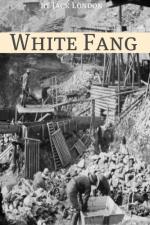|
This section contains 284 words (approx. 1 page at 400 words per page) |

|
London called White Fang the "complete antithesis" of The Call of the Wild, but although his canine protagonist moves from wild to civilized, White Fang again demonstrates its author's belief in the power of heredity and environment. He describes heredity as "a life-stuff . . . capable of being moulded into many forms" by the "thumb of environment." Whereas Buck had learned the law of "club and fang," Weedon Scott's compassion awakens in White Fang "potencies that had languished and well-nigh perished," specifically the ability to love.
Thus, London argues that kindness can be as powerful a modifying force as violence. White Fang's final confrontation with the escaped criminal Jim Hall, which pits a wolf shaped by affection into a loyal defender of his master against a man twisted by societal pressures into a killer, emphasizes London's belief that environmental factors are the primary determinant of morality.
In The...
|
This section contains 284 words (approx. 1 page at 400 words per page) |

|




